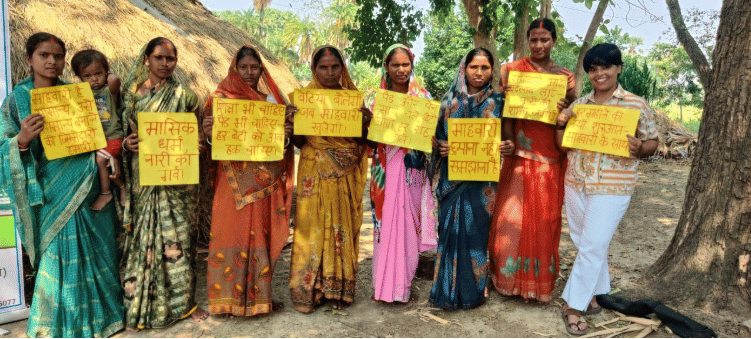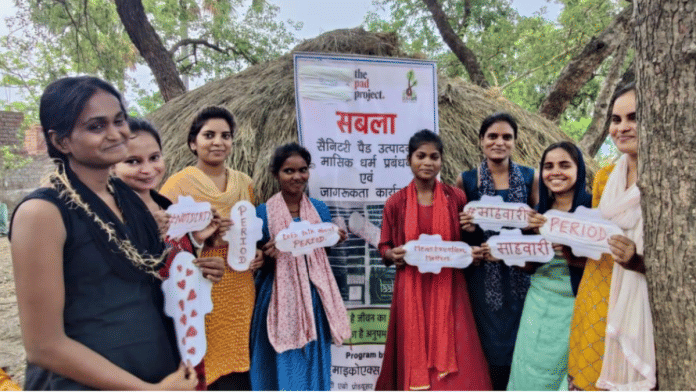Thank you dear subscribers, we are overwhelmed with your response.
Your Turn is a unique section from ThePrint featuring points of view from its subscribers. If you are a subscriber, have a point of view, please send it to us. If not, do subscribe here: https://theprint.in/subscribe/
In the dusty lanes and quiet villages of Gaya, Bihar, there exists a silence that has cost too many women their wombs.
It’s the silence around menstruation—unspoken, untreated and often tragically misunderstood.
As a menstrual health educator working deep in the heart of Gaya’s rural and naxal-affected belts, I begin every awareness session with one simple question:
“How many of you have undergone a hysterectomy?”
In every small group of 20 women, at least one or two timidly raise their hands. Some are in their early thirties, others not even done with raising children. Many don’t even know why exactly their uterus was removed—just that the bleeding wouldn’t stop, the pain wouldn’t go and the “solution” was surgery.
But what lies behind these surgeries is not just biology—it’s ignorance, stigma and neglect.
The Unseen Hygiene Crisis
In my interactions, I meet women who still rely on old cloth rags, sand, ashes or even dried leaves to manage their periods. These are not just outdated practices—they are unsafe and dangerous.
Girls as young as 11 or 12, at the cusp of menarche, often don’t know:
- What a sanitary pad is
- How to use it properly
- How often it needs to be changed
In many villages, bathing during menstruation is taboo and some women don’t bathe for 3-4 days straight. I’ve seen reusable cloths washed without soap and dried inside dark kitchens, under other clothes, never exposed to the sun. Most do not wash their hands before or after changing their menstrual products. The basic habit of cleaning the vaginal area is often skipped—either due to lack of knowledge or social restrictions.
All of this creates a breeding ground for infections, uterine complications and chronic pelvic diseases—which too often end with a hysterectomy.

Hysterectomy: A Surgery of Silence
In rural Bihar, hysterectomy has quietly become a normalized solution to gynaecological problems. Women undergo it without proper diagnosis, awareness or understanding of alternatives. It becomes the answer to years of neglect—a tragic full stop to a preventable journey.
But this isn’t just a health issue. It’s a gender, class and dignity issue. When women are denied access to proper menstrual health information and resources, they’re also denied control over their bodies.
Breaking the Silence: One Conversation at a Time
- In the rural belts of Gaya, where silence around menstruation is deafening, my approach is simple: be conversational, visual, and non-judgmental. Instead of lectures, I open with real numbers—asking how many women have undergone hysterectomy. The few hands that rise spark honest sharing and collective reflection. We then map what materials women use—cloth, pads, sand, ash, leaves—and introduce safe practices, including proper cloth washing, drying in sunlight, and hygienic storage. I explain when and how to change pads, the importance of handwashing, daily bathing, and identifying red-flag symptoms like foul discharge or severe pain.
- For adolescent girls, I use visuals, teach how to use pads, the “change timer” rule, and help them track cycles using calendars or beads. Myths—like not bathing or not touching pickles—are gently busted with facts. Crucially, I engage family members—mothers-in-law, husbands, boys, and shopkeepers—because change must ripple through the household and community. Follow-ups help track real impact: better drying practices, reduced infections, and fewer emergency surgeries.
Most importantly, we tell them:
Your period is not a curse. It should never cost you your womb.
It’s Time for a Menstrual Movement
Hysterectomy should not be a first—or only—resort. Preventable complications must be prevented with early education, access to hygiene and dignified conversations.
Menstrual health is not just about pads. It’s about power—the power to understand, choose and protect your body.
In the heart of Gaya, through every hesitant hand raised, every cloth pad stitched and every question asked, we are reclaiming that power.


